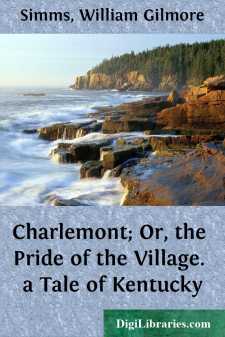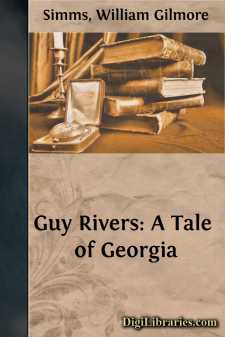Categories
- Antiques & Collectibles 13
- Architecture 36
- Art 48
- Bibles 22
- Biography & Autobiography 813
- Body, Mind & Spirit 142
- Business & Economics 28
- Children's Books 15
- Children's Fiction 12
- Computers 4
- Cooking 94
- Crafts & Hobbies 4
- Drama 346
- Education 46
- Family & Relationships 57
- Fiction 11828
- Games 19
- Gardening 17
- Health & Fitness 34
- History 1377
- House & Home 1
- Humor 147
- Juvenile Fiction 1873
- Juvenile Nonfiction 202
- Language Arts & Disciplines 88
- Law 16
- Literary Collections 686
- Literary Criticism 179
- Mathematics 13
- Medical 41
- Music 40
- Nature 179
- Non-Classifiable 1768
- Performing Arts 7
- Periodicals 1453
- Philosophy 64
- Photography 2
- Poetry 896
- Political Science 203
- Psychology 42
- Reference 154
- Religion 513
- Science 126
- Self-Help 84
- Social Science 81
- Sports & Recreation 34
- Study Aids 3
- Technology & Engineering 59
- Transportation 23
- Travel 463
- True Crime 29
William Gilmore Simms
William Gilmore Simms (1806–1870) was a prominent American writer and historian from South Carolina, known for his novels, poetry, and essays that reflected Southern culture and history. He authored numerous works, including "The Yemassee" and "Guy Rivers," which focused on frontier life and historical events in the American South. Simms was considered one of the leading literary figures of the antebellum South, often compared to James Fenimore Cooper for his portrayal of indigenous people and early settlers. His writings also explored themes of nationalism and Southern identity, making him a key figure in Southern literature.
Author's Books:
Sort by:
The domestic legend which follows, is founded upon actual events of comparatively recent occurrence in the state of Kentucky. However strange the facts may appear in the sequel—however in conflict with what are usually supposed to be the sensibilities and characteristics of woman—they are yet unquestionably true; most of them having been conclusively established, by the best testimony, before a...
more...
CHAPTER I. Confession, or The Blind Heart. "Who dares bestow the infant his true name? The few who felt and knew, but blindly gave Their knowledge to the multitude—they fell Incapable to keep their full hearts in, They, from the first of immemorial time, Were crucified or burnt."—Goethe's "Faust." The pains and penalties of folly are not necessarily death....
more...
CHAPTER I. THE STERILE PROSPECT AND THE LONELY TRAVELLER. Our scene lies in the upper part of the state of Georgia, a region at this time fruitful of dispute, as being within the Cherokee territories. The route to which we now address our attention, lies at nearly equal distances between the main trunk of the Chatahoochie and that branch of it which bears the name of the Chestatee, after a once...
more...
Chapter 1. Introduction—The Huguenots in South Carolina. The name of FRANCIS MARION is identified, in the history of South Carolina, his parent state, with all that is pleasing and exciting in romance. He is, par excellence, the famous partisan of that region. While Sumter stands conspicuous for bold daring, fearless intrepidity and always resolute behavior; while Lee takes eminent rank as a gallant...
more...





